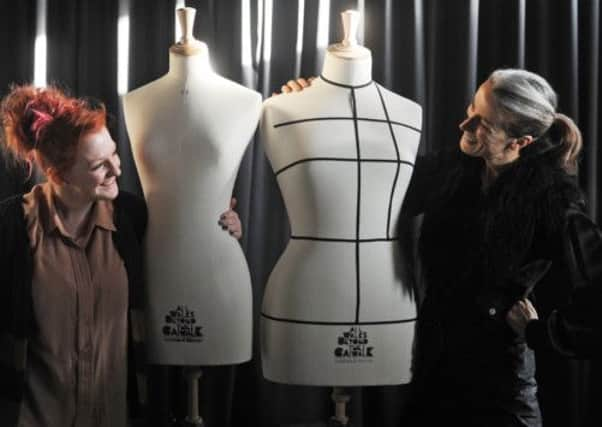MSP urges shops to scrap skinny mannequins


Dennis Robertson, SNP MSP for Aberdeenshire West, whose 19-year-old daughter Caroline died in 2011 after battling the illness for five years, believes the move could stop many women feeling pressurised to achieve an unrealistic body size.
He has joined forces with a leading medical specialist in writing to the British Retail Consortium (BRC), asking them to advise fashion outlets to move away from the size-ten mannequins many use.
Advertisement
Hide AdMr Robertson, who has taken action along with Dr Jane Morris, lead clinician in the Managed Clinical Network for Eating Disorders North Scotland, wants the BRC to ask fashion retailers to reflect the true size of women. The average British woman has grown from size 12 to size 16 in just over a decade.


Mr Robertson, who previously spoke of his daughter’s illness in a speech at the Scottish Parliament, said: “I think it is important that a range of models and mannequins are used to celebrate the diversity in our society. It is equally important to remember how young people can be influenced by what they see in shop windows, magazines or adverts.
“Young people can be easily influenced from what they see in shop windows or fashion magazines, and these images can promote an unhealthy lifestyle which can lead to eating disorders. It is not just the responsibility of medical professionals to help tackle the issue – the media and fashion industry must show some action, and I hope the British Retail Consortium will take action and issue advice to the fashion industry.”
Dr Morris said there was a need to widen the definition of what was regarded as “attractive”. “Accepting a range of body images, whilst embracing individuality and diversity, is likely to reduce the incidence of eating disorders and many other disorders characterised by low self-esteem and obsessionality.
“Any effort to widen public perception as to what constitutes attractiveness can only be healthy and civilised,” she said.
A spokeswoman from the BRC said that individual retailers make their own decisions based on customer feedback. “UK retailers already apply a variety of good-practice options within the arena of promoting body confidence,” she said.
Advertisement
Hide Ad“This can involve using a diverse range of mannequins and models, but also covers practical examples such as ensuring that clothing is available in a wide range of sizes, including tall, petite and maternity ranges, and offering advice in-store and online on figure-flattering clothes for customers that request it.”
Last night, a spokesperson for Marks & Spencer said: “We take a responsible approach to visual marketing. M&S mannequins are typically a size ten, way above industry average.”
Advertisement
Hide AdHolly Mitchell, who runs fashion store Totty Rocks in Edinburgh’s Bruntsfield Place, said: “I would definitely use a curvier mannequin. Ours are a size eight to ten and are tall and broad-shouldered like a supermodel. I sympathise with teenagers who would look at clothes and think, ‘Oh, I couldn’t wear that, I don’t look like that’. It can be quite intimidating.
“Also, even though people are becoming more aware of body image and eating healthier, the situation is not helped by celebrities who are getting skinnier and skinnier, as though it’s an achievement.”
Last weekend, equalities minister Jo Swinson, Lib Dem MP for East Dunbartonshire, who is promoting a government drive to promote body confidence among women, called on retailers to use a wider range of dummies on their shop floors.
SEE ALSO